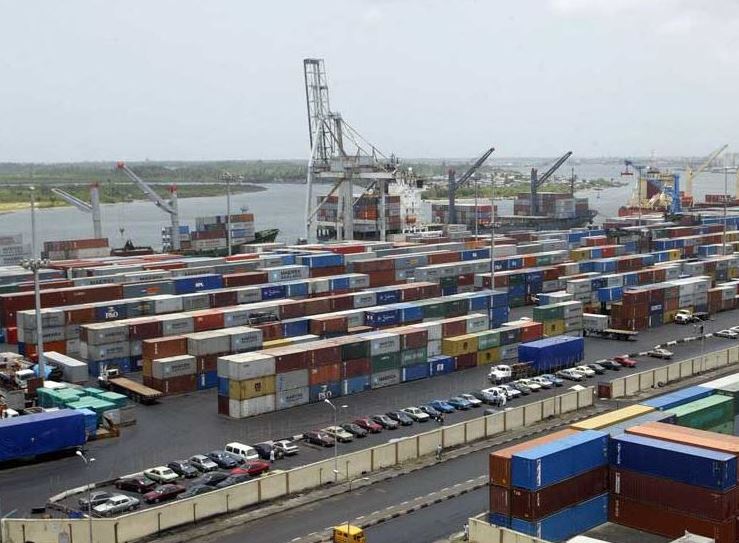A former Sole Administrator, Maritime Academy of Nigeria (MAN) Oron, Akwa Ibom, Mr Olu Akinsoji, says the demise of the Nigerian National Shipping Line (NNSL) truncated the development of Nigerian youths in world sea trade.
Akinsoji said this in an interview with the News Agency of Nigeria (NAN) at the sideline of a Forum titled “A Day with Nigerian Maritime Students’’, as maritime activities closed on Saturday in Lagos.
According to him, Nigerian Transport Handbook and Who’s Who credited NNSL in the late 90s with 897 ocean going officers and 451 cadet officers.
Akinsoji, Acting Chairman, Society of Nigerian Mariners (SNM) said, “Today, we do not know how many Nigerians are at sea, whereas the Philipines, Malaysians, Indonesians and many smaller countries including Ghana have established reliable mechanism to capture the sea trade for their youths.’’
The mariner recalled that in 1979, a nautical college was established.
He recalled that 19 new ships were built and 17 of those ships had facilities for four cadets while the remaining two had facilities for 30 cadets each.
Akinsoji said that at one time, Nigeria was capable of providing sea-borne training for 128 cadets.
He said that the nautical college was in 1998 re-institutionalised and strengthened to become the Maritime Academy of Nigeria (MAN).
The mariner said that MV Trainer was procured purposely for providing sea training for cadet.
“The ship, MV Trainer was trailed with unpleasant experience. Cadets absconded in foreign country; Nigerian training ships were arrested and the whole exercise was frustrated.
“The cumulative effect of these anomalies against youth development resulted in the lack of specialised manpower to deliver national policies,’’ Akinsoji said.
NAN reports that the theme of the Forum organised by Platforms Communication was “The Youth & The Future of the Nigerian Maritime Industry.’’
In the week under review, the Shippers Association Lagos State (SALS) said that Nigerian ports had lost over 73 per cent volume of cargoes as a result of low imports.
The President of the association, Mr Jonathan Nicol, told NAN that the Central Bank of Nigeria (CBN) policy on restriction of foreign currency on 41 items had affected importation
He said that some shippers had diverted their funds into farming as a result of the challenges confronting them in bringing cargoes into the country.
“If government reverses the policy, the volume of cargo will receive a boost and government revenue will also increase.
“The Minister of Transport is working toward the reversal of the policy to enable businesses to pick up in the industry than before, “ Nicol said.
Meanwhile, the Tin-Can Island Customs Command of the Nigeria Customs Service (NCS), has generated N14.3billion in April in contrast to N20.3 billion generated during the same period of 2015.
The Public Relations Officer of the command, Mr Chris Osunkwo, in an interview with NAN, attributed the shortfall in the revenue to the Central Bank of Nigeria (CBN) policy on restriction of foreign exchange on 41 items.
He said that that CBN had passed a circular recently concerning the policy, adding that as soon as apex bank reversed the policy, the revenue would move up again.
Osunkwo said that the Customs Area Controller of the command, Comptroller Yusuf Bashar, had been putting a lot of technology experience in ensuring that the command generated all revenues.
“Comptroller Bashar has been continuously admonishing officers in the command to generate all revenues in spite the low volume of cargoes.
“Bashar has also been monitoring the port operations in ensuring that there is no leakage in revenue generation, “ the spokesman said.
In the week under review, the Director-General, Nigerian Maritime Administration and Safety Agency (NIMASA), Dr Dakuku Peterside, said Nigeria was ready to partner with the Norwegian Government and its Maritime Authority for mutual benefits.
According to a statement by the Head, Public Relations Department of NIMASA, Hajia Lami Tumaka, in Lagos, Peterside said this when he received the Norwegian Ambassador to Nigeria, Mr Rolf Ree, in his office.
He said such partnership between both nations would propel the development of the maritime industry.
The director-general said that “vertical and horizontal partnership’’ was required to grow the Nigerian maritime sector.
Peterside described Norway as a great maritime nation which had earned global recognition as a complete maritime cluster driven by technological development.
He said that NIMASA had resolved to ensure safety and security on the nation’s waterways, adding that safety would attract more investors into the country.



Leave a Reply